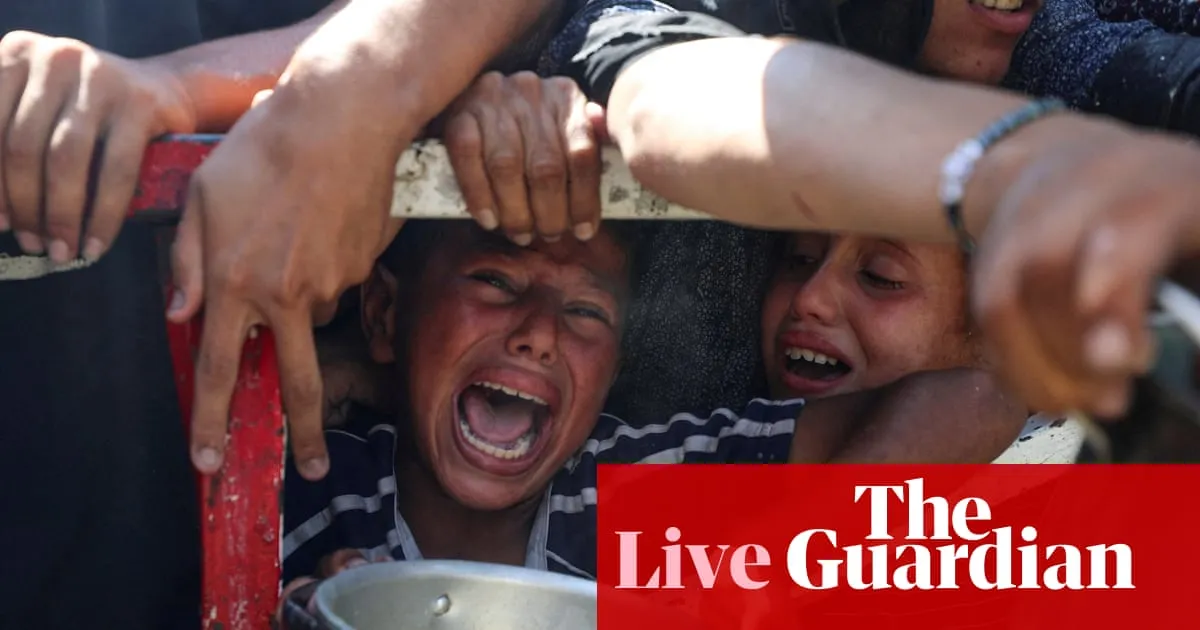
The Commissioner-General of the United Nations Relief and Works Agency (UNRWA), Philippe Lazzarini, has expressed grave concerns regarding the humanitarian crisis in Gaza. In a poignant statement shared on social media platform ‘X’, Lazzarini quoted a colleague stating, “People in Gaza are neither dead nor alive, they are walking corpses.” This alarming description underscores the extent of the suffering faced by residents in the war-torn enclave.
According to Lazzarini, UNRWA frontline health workers are enduring extreme conditions, surviving on merely one small meal a day, often consisting of just lentils, if they can find food at all. The situation has become so dire that these essential workers are increasingly fainting from hunger while attempting to provide care. “When caretakers cannot find enough to eat, the entire humanitarian system is collapsing,” he noted, highlighting the urgent need for humanitarian aid.
In international news, Iran has indicated its willingness to engage in talks regarding its nuclear program with the United States, contingent upon Washington taking significant steps to rebuild trust. Iranian Deputy Foreign Minister Kazem Gharibabadi stated that Iran is prepared to meet with the E3 nations—Britain, France, and Germany—along with the European Union’s deputy foreign policy commissioner in Istanbul.
These discussions will mark the first diplomatic engagement since the recent escalation of conflict in the region, particularly following the US B-52 bombers' strikes on Iranian nuclear-related sites. Gharibabadi emphasized several key principles for negotiations, including the need to respect Iran’s rights under the non-proliferation treaty and the lifting of existing sanctions.
The United Nations has reported uncertainty regarding the volume of aid awaiting distribution at the Gaza border due to restrictions imposed by Israel. As international criticism mounts over the humanitarian plight of over two million Palestinians in Gaza, the UN has expressed its inability to verify the amount of aid available because Israel has not permitted access to the crossings.
Jens Laerke, spokesperson for the UN humanitarian agency OCHA, stated, “Despite our repeated requests, Israel has not allowed the UN to be present at the crossings.” He further explained that the UN requires multiple approvals from Israeli authorities to facilitate the delivery of aid to those in need, emphasizing that humanitarian operations must be facilitated appropriately to ensure the safety of those involved.
In northern Syria, a tragic explosion in Idlib province has resulted in at least six fatalities and numerous injuries. The explosion, believed to have occurred in an ammunition depot, has raised concerns among local officials and rescue teams. The UK-based Syrian Observatory for Human Rights reported the incident, which took place in the town of Maarat Misrin.
Emergency response efforts are hampered by continued explosions in the area, complicating rescue operations and the transport of the injured and deceased. Health officials reported at least 140 individuals injured, highlighting the ongoing challenges in providing aid in conflict-affected regions.
The humanitarian crisis in Gaza has escalated alarmingly, with reports indicating at least 45 starvation-related deaths within a mere four-day period this week. The Ministry of Health in Gaza has recorded a total of 113 starvation deaths since the onset of the conflict on October 7, 2023, emphasizing the urgent need for increased humanitarian assistance.
On the ground, Israeli police are investigating a terror attack involving a vehicle that deliberately rammed into a bus stop, injuring eight soldiers. The attack occurred near Kfar Yona, and the police have classified it as a terrorist act. Eyewitness accounts describe a chaotic scene with victims calling out for help amid the aftermath.
The Israeli military confirmed that the injured soldiers were evacuated to a hospital for treatment. This incident underscores the ongoing tensions and violence in the region, further complicating the humanitarian landscape.
The European Union has expressed its readiness to explore all options if Israel fails to improve the delivery of humanitarian aid to Gaza. An EU spokesperson acknowledged Israel's recent efforts but noted that the situation remains critical. The EU is advocating for a substantial increase in daily aid truck deliveries and the reopening of various crossing points to facilitate aid access.
As the humanitarian crisis deepens, international stakeholders continue to monitor the situation closely, emphasizing the need for immediate action to avert further suffering among the civilian population in Gaza.